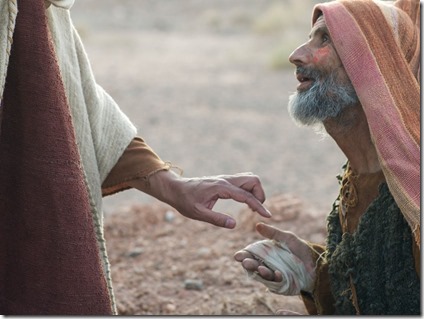“When you reap the harvest of your land, do not reap to the very edges of your field or gather the gleanings of your harvest. Do not go over your vineyard a second time or pick up the grapes that have fallen. Leave them for the poor and the foreigner. I am the LORD your God” –Leviticus 19:9-10
In the Old Testament the people of God were taught to not squeeze every ounce out of the land that they could get. They were supposed to leave the margins of their field unharvested, they weren’t to pick up the stuff that fell on the ground, they were only to harvest once.
Why would you leave your field unharvested? Why not get every bit of grain you can? It’s yours. It’s your land. It’s yours to do with what you want. Not for the people of God. They were to leave this for the foreigner and the poor. Leave margins so that others can thrive.
I thought of this principle the other day while preaching in Luke 12. We were discussing the dude who had a good crop and so decided to build even bigger barns to store them. He clearly did not understand the principle of leaving his fields open for others to glean. His issue was that his treasure was in possessions—he measured success by stuff. Rather than pursuing the flourishing of others (leaving fields open to glean) he used every bit of his possessions for self-flourishing.
I also think it’s interesting that Jesus would share this illustration with this particular audience. Certainly there would have been wealthy (or formerly wealthy) people within their midst. Jesus reached a wide swath of people. But his audience would have been predominately poor. Why talk about the guy with big barns if none of the people there had this problem? I think it was similar to how Nathan shared a story with David after the king had raped Bathsheba. Had he came in directly David would have went into defensive mode. The same is true of Jesus’ audience. They could look at the guy with bigger barn philosophy and say, “what a fool”. But then Jesus, just as Nathan did with David, helped them see “you are that man”.
The way of the disciple is the opposite of the bigger barn philosophy.
33 Sell your possessions and give to the poor. Provide purses for yourselves that will not wear out, a treasure in heaven that will never fail, where no thief comes near and no moth destroys.
Use your possessions for the flourishing of others.
How This Relates to Our Local Church
God has blessed our congregation with a very large facility. (We are also thankful that it’s paid off). But the size of our facility is actually much bigger than what we need at this point. We’re hopeful for growth. We would love to see a fruitful harvest. But there is a ton of unused space. And sadly, these rooms have slowly filled up with stuff. We have many rooms which are unused.
What if we started thinking of our church building like a field? Would God call us to squeeze every bit out of our building for our own flourishing? Or would God be calling us to leave space for gleaning? What if we started thinking of the edges a bit differently? What would it mean for us to leave places within our building open for gleaning?
I don’t know the specific answers to these questions for our context. But I think it’s worth asking. And if I’m correct in my understanding of the Old Testament—it really doesn’t matter how vast our field is, we’re still supposed to leave space for others to thrive. We should think through how to use any blessing we have to create flourishing for others.
—
Photo source: here



